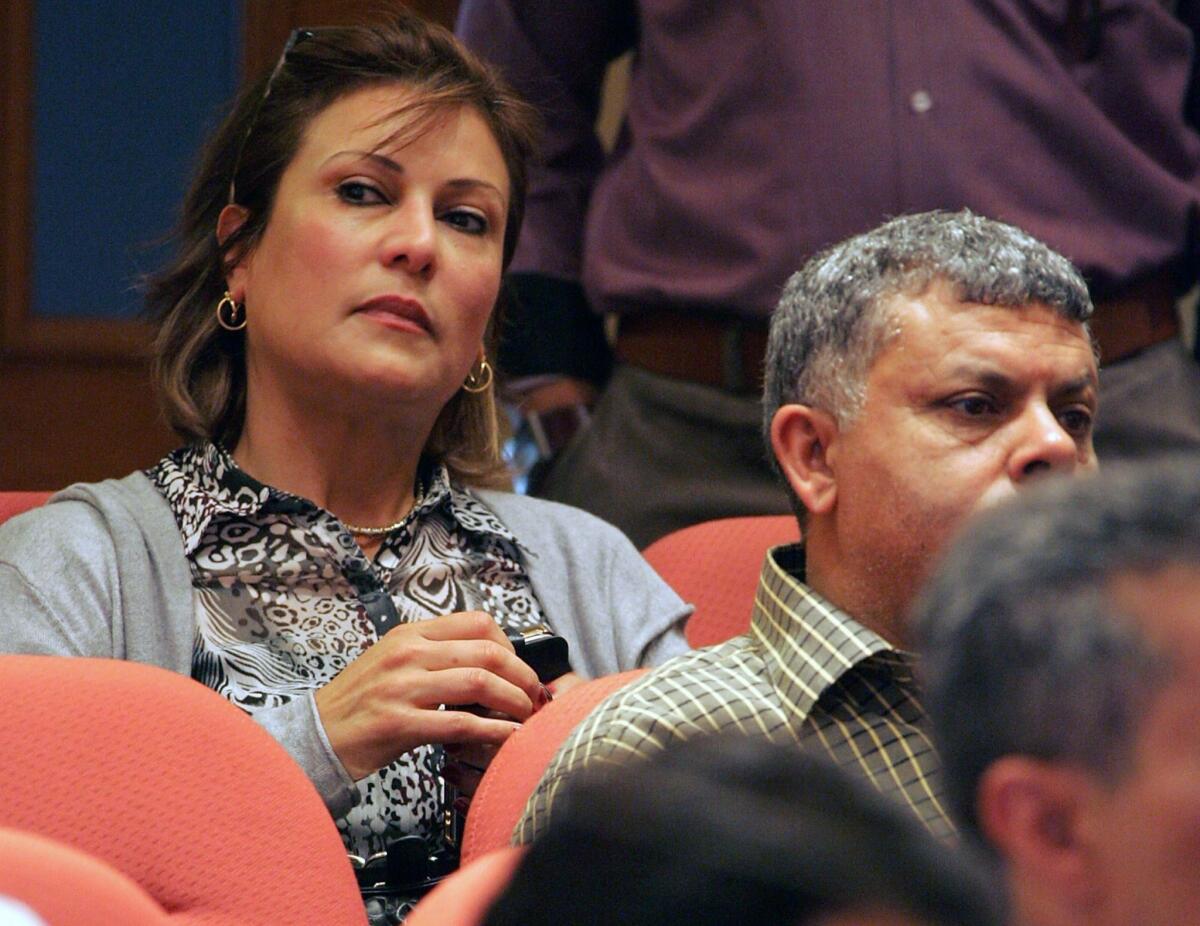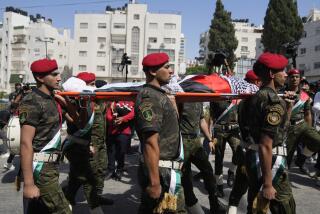Killing of Libyan human rights lawyer shocks many

- Share via
reporting from Benghazi, Libya — Even in violent times in a violent city, the death of Salwa Bougaighis had the power to horrify.
The prominent human rights lawyer, 47, was attacked by masked men with guns and knives who stormed the walled compound where she lived in the eastern city of Benghazi, according to officials and news reports. She died a short time later in a hospital of a gunshot wound to the head, according to Libya’s state news agency, and had also been stabbed.
There was no immediate claim of responsibility, but Bougaighis had often come under threat for her activism. She was outspokenly critical of armed Islamist groups that have come to the fore, particularly in Benghazi, after the 2011 toppling and death of longtime dictator Moammar Kadafi.
Not long before her death, the lawyer had posted a photograph online, taken from her roof, which showed a military-style pickup truck mounted with a heavy gun. She said it was from an Islamist brigade’s base that was close to where she lived.
Hours before the attack, she had also spoken by phone to a television station about fighting taking place nearby. “The clashes are very close to my house and the situation is alarming,” she told Alnabba TV, sounding frightened.
The attack on Bougaighis came soon after the polls had closed in Libya’s first parliamentary election since 2012. She had documented that on Facebook as well, putting up a photo of herself at a polling station.
The U.S. ambassador to Libya, Deborah Jones, called Bougaighis’ death “heartbreaking” and the killing a “cowardly, despicable” act.
“This light cannot be extinguished,” she tweeted.
Bougaighis’ husband, who was said to have been home at the time of the assault, was reported missing.
Benghazi has been the center of a chaotic confrontation between renegade former general Khalifa Hifter and the Islamist militias on which he has declared war. The fighting has left dozens dead and deepened what was already a free-for-all battle among heavily armed rival groups as the weak central government has looked on helplessly.
Over the last year, the militias have grown ever more brazen. In October, an armed faction briefly abducted the then prime minister, and in March, a breakaway group made an audacious attempt to sell a tanker loaded with crude oil, which set sail from a militia-controlled port. The tanker was subsequently intercepted by U.S. Navy SEALs.
Assassinations have become a regular feature of life in Benghazi, and those targeted by suspected Islamists have included military officials and police as well as judges, moderate clerics, intellectuals and leaders of civil society. The city was the scene of the notorious 2012 attack on a U.S. diplomatic compound that killed American Ambassador J. Christopher Stevens.
Bougaighis had been an early and active participant in the uprising against Kadafi, serving in a leadership role in the rebellion’s political arm. She pushed for greater female representation in the post-revolution power structure and was appointed to a panel seeking to foster a national dialogue. Friends of the mother of three described her as a charismatic and elegant figure.
Turnout was light in Wednesday’s parliamentary election, with only about half of registered voters casting a ballot. Many polling stations in the capital, Tripoli, and other cities were deserted, with fear of violence keeping some home, and others too drained and discouraged by ongoing turmoil to vote. Three members of the security forces were reported killed in election-day violence.
Juma is a special correspondent. Staff writer King reported from Cairo. Special correspondent Amro Hassan in Cairo contributed to this report.
For news from the Middle East and North Africa follow @LauraKingLAT
More to Read
Sign up for Essential California
The most important California stories and recommendations in your inbox every morning.
You may occasionally receive promotional content from the Los Angeles Times.










